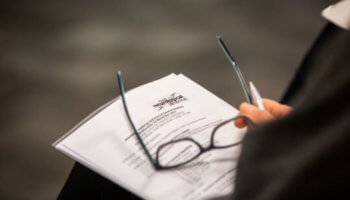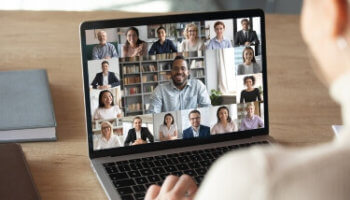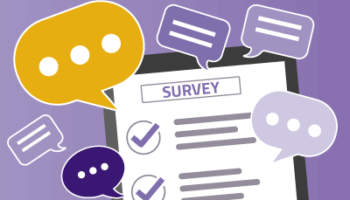Responding to COVID-19: GAIN
04/05/2020
Responding to COVID-19: voices from our membership
The Guillain-Barré & Associated Inflammatory Neuropathies (GAIN) team support people affected by Guillain-Barré syndrome (GBS) and chronic inflammatory demyelinating polyneuropathy (CIDP) in the UK and Ireland. Chief Executive Caroline Morrice blogs about the challenges facing those they support, and how the team is adapting to a new normal.
When we moved from our offices to working from home, continuity was not a big problem. We already had cloud-based systems and laptops with conference calling and our peer support volunteers can still maintain contact with patients and families using FaceTime, Skype or WhatsApp, which has been working well. Branch gatherings are now held through video conference facilitated by one of the GAIN team. We are starting to witness the development of the new post COVID-19 normal among our team and members. Not all changes are for the worse.
Receiving a diagnosis of GBS or CIDP can be an isolating experience at any time, bringing with it many questions. The GAIN helpline has seen an increase in questions about the impact of COVID-19, from people who have had a recent diagnosis, have had GBS in the past or are living with CIDP.
One question that has emerged is whether coronavirus can cause GBS. Emerging cases from Italy and one from the UK suggest it might. Five COVID-19 patients out of around 1,000 admitted to hospitals in northern Italy developed GBS. A British radiographer also recovered from both COVID-19 and GBS in a Kent hospital in April. However, it’s much too early to know if COVID-19 significantly increases the risk of GBS.
For most of our patients, daily life can continue in line with current government guidance. However, some of our patients with chronic forms (including CIDP and MMN) may be being treated with immune suppressant drugs such as steroids which requires them to be shielded. Others have co-morbidities that would have a similar impact on whether they need to be shielded, self-isolate or can go out of their home within the current guidelines.
The most difficult situations have arisen where patients recovering from GBS are being discharged from hospital earlier than normally expected, and without receiving the physical or mental rehabilitation that would normally be provided. Families have been told in some cases that this is to protect the GBS patient from the coronavirus, and in others that the beds are needed for COVID-19 patient rehabilitation. With community treatments also unavailable, these people are often left with carers visiting to carry out only the most basic tasks. This means that if they still have restricted mobility or dexterity, their ability to rehabilitate and get a full range of movement is severely hampered. Others are relying on family members and use of the internet for physiotherapy ideas. GAIN is trying to offer help with ideas and links to suitable online sites. The longer-term impact of poor rehabilitation will need to be measured as it could create greater mental and physical problems later on, putting an even bigger strain on already stretched health and social care systems.
The current situation is also making us consider our sustainability as an organisation. April to June has traditionally been a good fundraising period and our prediction is around £50k lost revenue. If the restrictions continue to Christmas, we could easily see this double. Like many less well known or smaller charities, we are unable to tap into the funds being created to deal with the impact of COVID-19 because we do not fit the criteria. The question must be: how long will it take to get the UK back on its feet and giving to charities not directly related to COVID-19 or the NHS? Only then can I confidently say whether we’ll be able to keep providing support to the people who need us.
To find out more visit the GAIN website.





